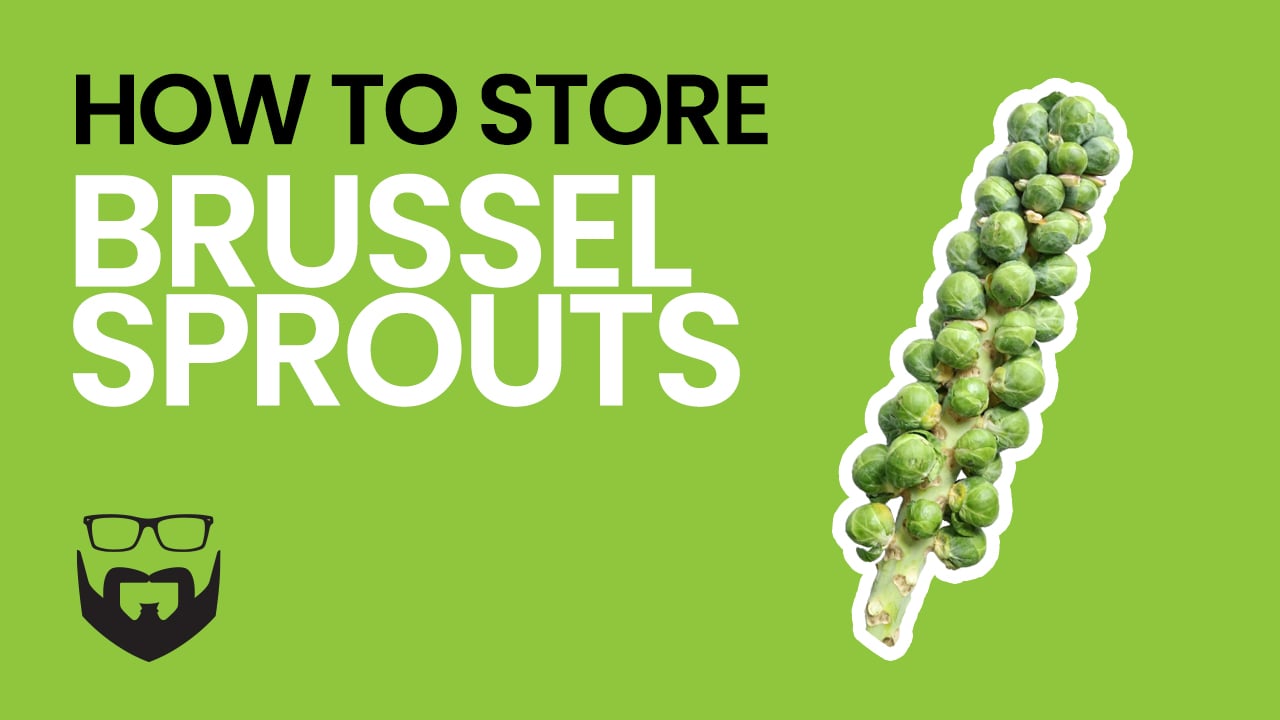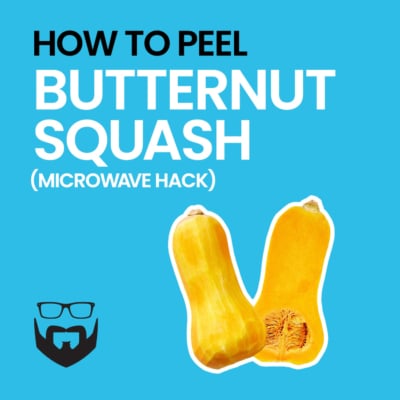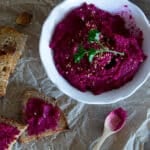On the stalk or chopped up, here is the best way to store brussels sprouts and keep them fresh, plus tips on when to eat them for best flavor.
Stored properly, they can stay fresh for over a month, but I wouldn’t stock pile them just yet. First thing, brussels like it cold, around 30 degrees F, so you definitely want to keep them in the fridge. Secondly, it is best to prep them before storage.
If any of the sprouts have yellow leaves, pull them off. Also remove any leaves that have black spots. If the sprouts are soft, squishy, or smell bad — I hope this is obvious — toss those out too. Ain’t nobody got time for that.
Whatever way you store them, do not wash ’em before using them. Yes, they are blasted with water in the grocery store, where they are stored, out in the open. There, they can dry completely, not damaging the produce. Your fridge is a completely different environment.
How to Store Loose Brussels Sprouts
Most brussels sprouts are sold this way, typically in a bin at the grocery store or farmers market. And you can pretty much store them how you buy them. Take the produce bag you loaded up with these tiny looking cabbages and put it in the crisper drawer of your refrigerator.
If you have the option to adjust the humidity, these sprouts like it humid. Kept this way, brussels sprouts can keep for weeks, over a month actually. But there is a catch. More on that below.
How to Store a Brussels Sprouts Stalk
Brussels sprouts on the stalk are a thing of beauty, right? Even the most staunch hater won’t deny how fucking cool they look. And while purchasing brussels in this format is typically limited to the farmers’ market (or Trader Joe’s), knowing how to store them is still important.
You should store brussels sprouts on the stalk like cut flowers. Trim off the end and put it in a small vase or mason jar (something that will not tip) and store them in the fridge. Those stalks will last the longest.
Oh, you might have to cover the stalk with a bag depending on your fridge. And if your fridge isn’t tall enough, you can chop the stalk into separate pieces and just store them as outlined above. When you are ready to enjoy them, just cut off the brussels you plan to use and leave the others til next time.
How to Store Cut Brussels Sprouts
If you are buying your sprouts chopped, sliced, shredded, or cut up, keep in mind, it is best to use these up the fastest. Unlike loose brussels or those on the stock, they will spoil the fastest. This is true of all prepped produce.
For these, store them in an air tight container for best results. You don’t have to take them out of the sealed package they came in. But once you do open it, store remaining brussels that way.
When to Eat Brussels Sprouts
The food storage tips above will keep those sprouts fresh for a long time, but there is a catch. These mini cabbage-like veggies lose their sweetness from the moment they are harvested. So the longer you store them, the more bitter they get.
I recommend eating them within 3 days of purchasing for the best flavor.
Brussels Sprouts & Ethylene Gas
Ethylene is a natural plant hormone that causes the cells within fruits and vegetables to degrade. This means fruit getting softer and sweeter, but also black and fuzzy. All produce puts off some level of ethylene gas (just like we all fart) and all produce is sensitive to it on some level.
For example, you can quickly ripen an avocado, which is highly sensitive to ethylene, by placing it in a sealed paper bag with a apple, which is a high ethylene gas producer. The magic of mother fuck’n nature, am I right?!
But what about brussels sprouts:
- Very low ethylene gas emitters.
- Highly sensitive to ethylene gas.
Because they emit low amounts of ethylene, you can store them next to any produce that isn’t too sensitive to the plant hormone, but you should not store them next to high to medium emitting produce.
Ethylene Producing Fruits & Vegetables
- Apples
- Apricots
- Avocados
- Ripening Bananas
- Cantaloupe
- Cherimoyas
- Figs
- Honeydew
- Kiwifruit
- Mamey Sapote
- Mangoes
- Mangosteen
- Nectarines
- Papayas
- Passion Fruit
- Peaches
- Pears
- Persimmons
- Plantains
- Plums
- Prunes
- Quince
- Tomatoes
How to Freeze Brussels Sprouts
If you want to freeze them, it is pretty easy. Prep them for cooking as you do, and then steam them for about 5 minutes, until easily pierced with a sharp knife. Plunge them into an ice bath until cooled. Lay em out on a parchment-lined baking sheet and place it in the freezer for an hour. Transfer them to a freezer safe container and they should keep for about a year.






